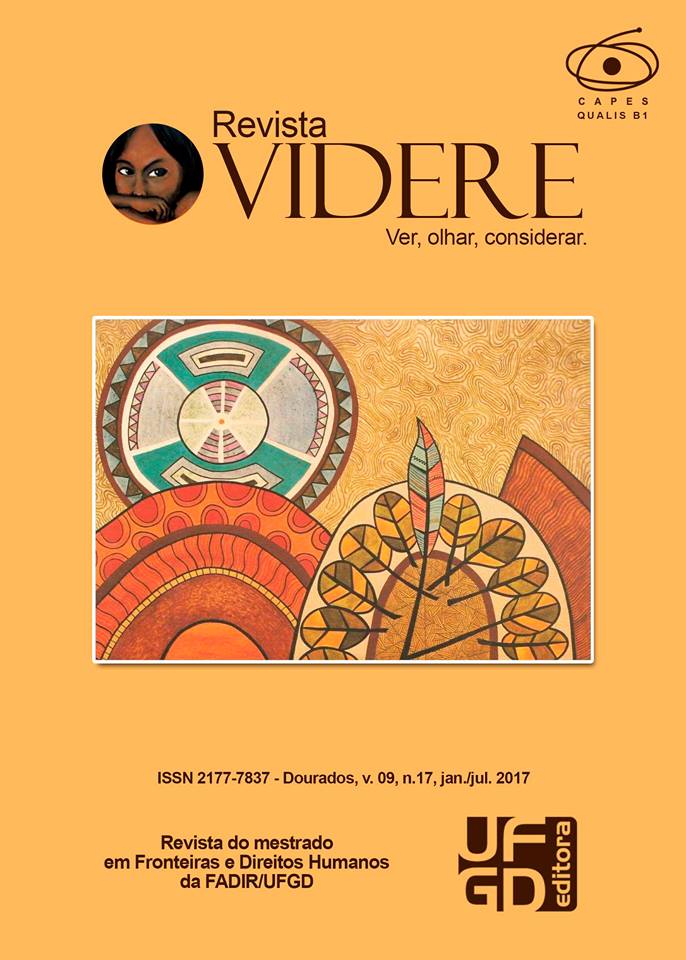Carecer de derechos: una introducción a los estudios teóricos sobre la apatridia
DOI:
https://doi.org/10.30612/videre.v9i17.6072Keywords:
Apatridia. Estado, causas y efectos. Tratamiento institucional de la apatridia.Abstract
Testimoniar la existencia de un individuo es una obligación del Estado, tanto que el acceso a un acta de nacimiento, manifiesto en el derecho a la identidad y el derecho a la nacionalidad, se ha elevado al rango de derecho fundamental. El Estado nunca ha sido neutral, no testimonia sin más, categoriza, segmenta lo existente, colocando a los individuos en una jerarquía que los define como “alguien”: persona, menor, ciudadano, etc. El Estado también decide quién es “nadie” y lo clasifica como apátrida, aquel que no es reconocido por ningún Estado como su miembro. Según el ACNUR, durante 2015 se contabilizaron más de tres millones de apátridas en el mundo, sin embargo se calcula que la cifra es definitivamente mayor y que, eventualmente, éste será un problema tanto geopolítico, en términos de migraciones, supervivencia cultural de Occidente y efectividad de sus Estados, como de fundamentación del Derecho en lo que hace a la definición de sus sujetos y a la legitimidad de sus cánones. El objetivo de este documento es presentar una perspectiva contemporánea de las causas, efectos y tratamiento institucional de la apatridia. Mostrando, a partir de ello, la relevancia de la figura del apátrida para el análisis político internacional actual.Downloads
Downloads
Published
How to Cite
Issue
Section
License
Authors must accept the publication rules when submitting the journal, as well as agree to the following terms:
(a) The Editorial Board reserves the right to make changes to the Portuguese language in the originals to maintain the cultured standard of the language, while respecting the style of the authors.
(b) Authors retain the copyright and grant the journal the right to first publication, with the work simultaneously licensed under the Attribution-NonCommercial-ShareAlike 3.0 Brazil (CC BY-NC-SA 3.0 BR) that allows: Share - copy and redistribute the material in any medium or format and Adapt - remix, transform, and create from the material. CC BY-NC-SA 3.0 BR considers the following terms:
- Attribution - You must give the appropriate credit, provide a link to the license and indicate whether changes have been made. You must do so under any reasonable circumstances, but in no way that would suggest that the licensor supports you or your use.
- NonCommercial - You may not use the material for commercial purposes.
- Sharing - If you remix, transform, or create from material, you must distribute your contributions under the same license as the original.
- No additional restrictions - You may not apply legal terms or technological measures that legally restrict others from doing anything that the license permits.
(c) After publication, authors are allowed and encouraged to publish and distribute their work online - in institutional repositories, personal page, social network or other scientific dissemination sites, as long as the publication is not for commercial purposes.



















